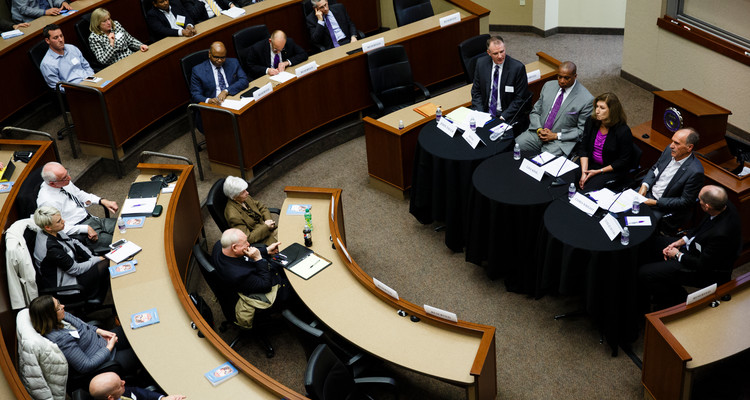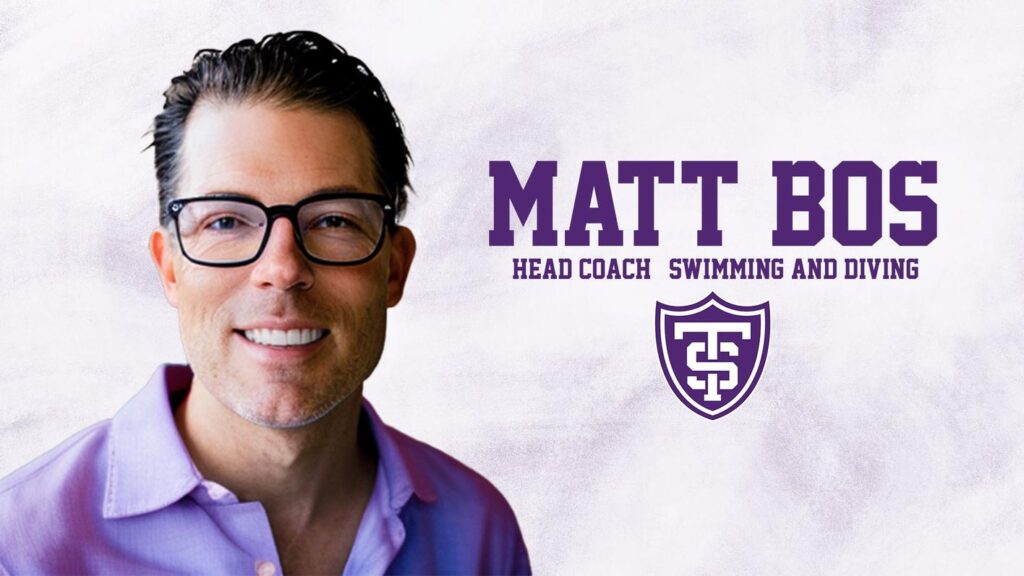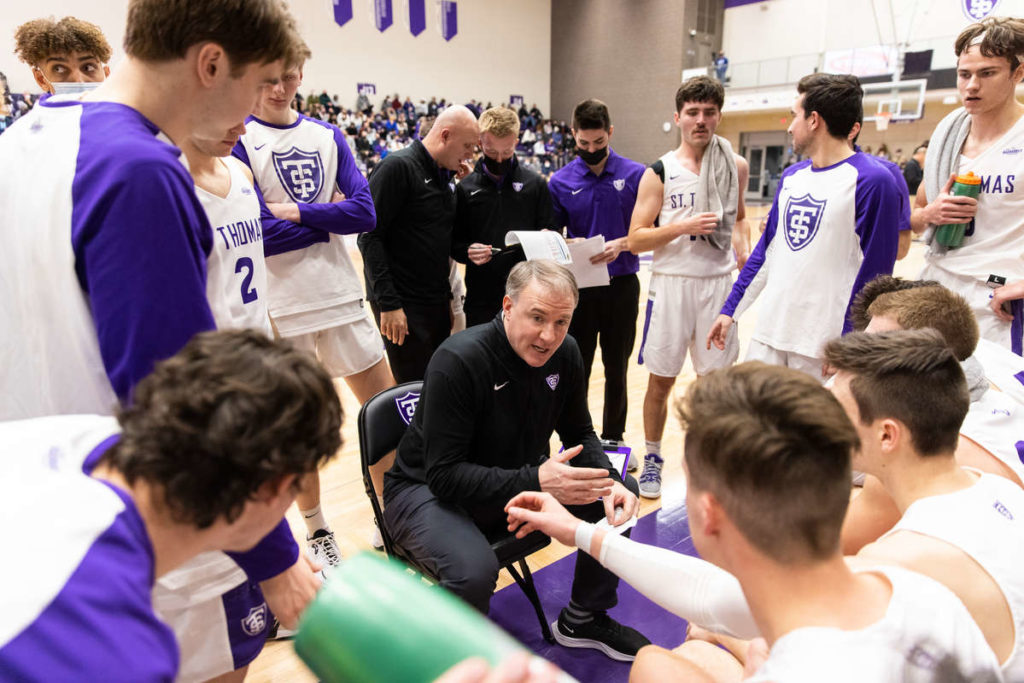St. Thomas psychology professor John Tauer, Ph.D., asked those gathered in Schulze Hall on Thursday evening if they could recall what sporting adage former Chicago Cubs first baseman Mark Grace became so well known for. The 150 or so people were there to hear Tauer lead a panel about what “Winning With Integrity” means in today’s sports landscape, which included Kevin Warren, COO of the Minnesota Vikings; Tom Kurvers, senior adviser to the general manager for the Tampa Bay Lightning; Lisa Kihl, Ph.D, associate professor of sport management at the University of Minnesota; and Chris Wright, president of the Minnesota Timberwolves and Minnesota Lynx.
“If you ain’t cheating, you ain’t trying,” was the famous line credited to Grace, an attitude that – as Tauer pointed out – helped endear him to fans. But how does ethical behavior actually coexist with a desire to win, especially at the professional and high collegiate levels? What supports and rewards ethical behavior in sports? How do business ethics apply to sports, and how do the lessons of sports people learn throughout their lives apply to business and life in general?
Tauer and the four panelists tried to parse out these kinds of questions in a discussion that ranged from youth athletics, to penalty minutes’ relation to arbitration value in the NHL, to the role of trash talking. Here are five takeaways from the discussion, which was hosted by St. Thomas’ Opus College of Business Department of Ethics and Business Law, The Veritas Institute and the Center for Ethical Business Cultures.
Like any business, leadership sets the tone for integrity in sports organizations.
Wright opened his remarks with a request that the audience members think of their best and worst sporting memories, and to correlate that experience to the people who led it and what they emphasized. As prevalent as sports are in our society, he said, we have to acknowledge that they can have a great influence, for good or bad. Leaders have the responsibility of deciding what outcomes their organization will have – ethical or unethical, integrity-driven or not – by creating a culture that drives things one way or another. Put simply: Integrity at the top will help integrity flourish throughout.
Get your processes right to enforce the right values.
Kihl especially highlighted the difficulties for larger organizations to have the proper oversight that ensures values of integrity are seen through by every employee and aspect of business. While things might be presented one way to an overseeing unit, if they are not actually being carried out that way then unethical behavior is allowed to flourish. Ethical processes – from hiring people with character, to making sure there is proper supervision throughout the organization – are a key to making sure sports organizations have integrity.
There’s a belief that there are many positives for people and society from sports, and that they can outweigh the bad.
Those attending the talk received copies of Tauer’s latest book, which highlights the growing bad behavior of parents in a youth sports landscape that has become a multi-billion dollar industry. That kind of money only grows the higher in sports you go, and the adage of money as the root of all evil undoubtedly holds sway throughout all sports. But as Warren passionately pointed out in his own example – stating that he wouldn’t be anywhere close to where he is in life without sports – he believes “there’s more right than wrong about sports.” People learn lessons in sports that they wouldn’t anywhere else, and those lessons have helped create good people in society for generation after generation. Making sure that, throughout all sports, values like integrity, humility and ethical behavior come to the forefront is as difficult today as ever, but it’s also as important today as ever.
You have to separate winning and losing from the standards of integrity.
Wright had some fun with the audience at different points with self-deprecating allusions to the Timberwolves’ notorious difficulty in putting together winning teams. He said the organization, though, thanks to the leadership and emphasis of its owner, Glen Taylor, views its success in much wider terms than its wins and losses. That informs the decisions of which players it brings in. “Skill sets are one thing. Character is another,” Wright said. Karl Anthony-Towns, the team’s latest top draft pick, was selected over another highly touted player in large measure because of his character, Wright said.
Those kinds of decisions are applicable throughout all sports, in that it’s an example of how integrity should be the ultimate guiding measure. Despite media and fans’ predisposition to judge success simply by wins and losses, having people in your organization who represent integrity and ethical behavior is more important.
The St. Thomas men’s basketball team cleans up well – and gets some recognition.
Tauer included in his opening remarks a shout-out to the back two rows of the auditorium, where about 20 of his players were seated in dress shirts, jackets or suits. “They weren’t forced to come here today. Maybe a gentle nudge,” Tauer said. After he and each of the panelists had received applause after their introduction, Warren urged the audience to give the men’s basketball team a round of applause. “To be a true student athlete, at a highly academic university, that’s what it’s all about,” he said. Highlighting the good aspects of sports and where they rank in priority to other important aspects of life was a point that came up in several ways throughout the evening, and Warren’s acknowledgement of the Tommies' student-athlete balance was a fitting one.
Watch the full discussion:






